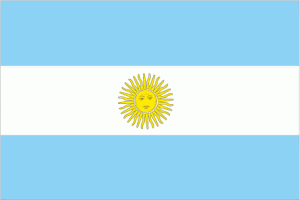 [Maximiliano Marzetti, IP Watch, Link (CC-BY-NC-ND)] The Congress of Argentina recently passed a landmark law making publicly funded science and technology research publications free and open access.
[Maximiliano Marzetti, IP Watch, Link (CC-BY-NC-ND)] The Congress of Argentina recently passed a landmark law making publicly funded science and technology research publications free and open access.
On 13 November, the Argentinian Congress passed a law (No. 26.899, Creating Institutional Open Access Digital Repositories, Owned or Shared) establishing that all institutions belonging to the National Science and Technology System (SNCYT, according to its acronym in Spanish) that receive public funds (partly or entirely) shall create free and open access institutional digital repositories where all the scientific and technological publications (which includes journal articles, technical and scientific papers, theses, etc.) and research data must be available.
The free and open access institutional digital repositories shall be compatible with international interoperability standards, and ensure free open access to the documents and research data (Article 4).
With the new law Argentina, clearly aligns with those countries advocating the so-called green route (self-archiving) to open access, making publications freely available after the end of an embargo period.
In accordance with new law, researchers, technologists, professors, postdoctoral fellows, graduate and PhD students whose research activity is financed by public funds, shall deposit or expressly authorise the submission of a copy of the final version of their scientific and technological production, published or accepted for publication, in the corresponding free and open access institutional digital repository within a period not exceeding six months.
In addition, primary research data should be deposited in the corresponding free and open access institutional digital repository within a period not exceeding five years from the date of collection (Article 5).
In the event scientific and technological publications and primary research data were protected by intellectual property rights or by private agreements with third parties, the authors must provide and allow public access to the metadata of such publications and primary research data, agreeing to provide full access to the publications and primary research data from the expiration date of the intellectual property rights or private agreements with third parties (Article 6).
The Ministry of Science, Technology and Innovation (MINCYT, according to its acronym in Spanish) is the enforcement authority (Article 7).
The law also establishes administrative sanctions. Failure to comply with the Act’s provisions will make the breaching institutions and organisations ineligible for public financial support (Article 8).
According to Alejandro Ceccatto, Science and Technology Liaison Secretary at MINCYT, the law is a response to the monopolistic position of large international publishers. He called it unacceptable that a society that subsidises scientific production cannot freely access the resulting knowledge. Ceccatto’s opinion is available here.
The full text of the Act (in Spanish) is available here.




